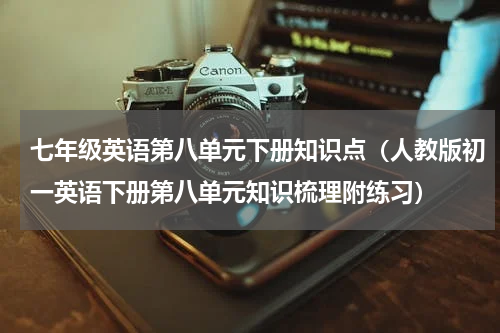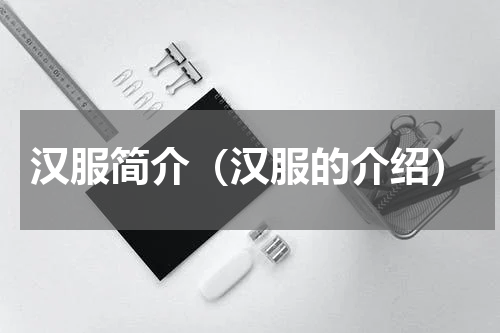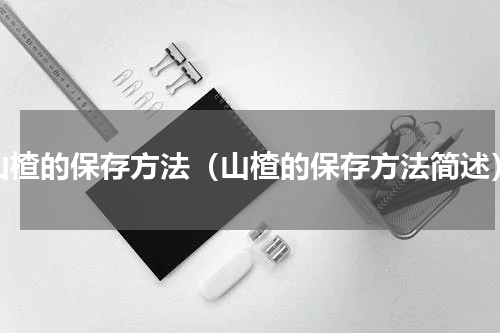七年级英语第八单元下册知识点?初一英语下册第八单元知识梳理附练习,我来为大家科普一下关于七年级英语第八单元下册知识点?后面11.onCenterStreet在中心街12.farfrom…生活中最美好的东西是免费的呀!through表示从内部通过,有“穿过,透过”等意思。inthefrontof强调一个物体在另一个物体内部的前面。做行为动词时,意为“转弯,转身,翻转,旋转”。

七年级英语第八单元下册知识点?初一英语下册第八单元知识梳理附练习,我来为大家科普一下关于七年级英语第八单元下册知识点?下面希望有你要的答案,我们一起来看看吧!
七年级英语第八单元下册知识点
初一英语下册第八单元知识梳理附练习
Unit8 知识梳理
【重点短语】
1. near here 在这儿附近
2. post office 邮局
3. police station 警察局
4. pay phone 付费电话
5. on Bridge Street 在桥街
6. across from 在…对面
7. next to… 在…旁边
8. between...and... 在…和…中间
9. in front of… 在……前面
10. behind… 在…后面
11. on Center Street 在中心街
12. far from … 远离…
13. go along 沿着
14. turn right/ left 向右/左转
15. at the first crossing 在第一个十字路口
16. on one’s left/right 在某人的左边/右边
17. spend time (in) doing 花费时间做某事
18. watch sb. doing sth. 看见某人正在做某事
19. look like 看起来像
20. love the clean air and sunshine 喜爱清新的空气和阳光
21. the best things 最好的事情
22. be free 免费的
23.cross Center street 穿过中心街
24. have to do sth. 不得不做某事
25. a noisy neighborhood 喧闹的街区
26.get to the library easily 很容易到达图书馆
27. enjoy doing sth. 喜欢做某事
28. go shopping 去购物
29. be busy 忙的
30. make the foods 做食物
【重点句型】
1.---Where are the pay phones? 付费电话在什么地方?
---They’re between the post office and the library.在邮局与图书馆之间。
2.How can I help you? 需要我帮忙吗?
3.I’m new in town. 我新来此镇。
4.To get there, I usually walk out and turn right on Bridge Road.
赛去那儿的话,我通常步行外出,在大桥路向右拐。
5.The best things in life are free! 生活中最美好的东西是免费的呀!
6. It is very quiet and I enjoy reading there. 图书馆很安静,我喜欢在那儿看书。
7.Turn right at the first crossing and the restaurant on your left.
在第一个十字路口向右拐,饭馆就在你左边。
8.Thank you very much. 非常感谢。
9.You’re welcome. 不客气。
【写作话题】本单元以问路指路为话题,向他人问路或指路。
写作题目:假设你叫李雷, 这个星期天是你的生日,你准备在家举办一个生日聚会,聚会在六点钟开始。你邀请了你的一些朋友参加,Susan 也在其中, 可她不知道去你家的路。你家住在Bridge Street,乘坐六路或八路公共汽车在Bridge Street站下车,下车后直走,然后在第一个十字路口右拐,左边有一个邮局,你家就在邮局的对面,房子是红色的,很容易找到。请根据所给信息给Susan写封邮件。
优秀满分范文:
Dear Susan,
This Sunday is my birthday. I’ll have a birthday at my home. It starts at 6p.m.. Would you like to come? I’ll ask some of my friends to come.
My home is on Bridge Street. You can take a No.6 or No.8 bus, and get off on Bridge Street. Go straight ,and then turn right at the first crossing .You can see a post office on your left. My home is across from the post office. It is a red house. You won’t miss it.
Yours,
Li Lei
词汇讲解
1. across from
across from在……的对面;在……对过。例如:The hospital is across from the supermarket.
医院在超市的对面。
辨析:across与through
across表示的是从某物的一边到另一边;指从表面上横过。例如:She ran across the road. 她从马路上跑过。through表示从内部通过,有“穿过,透过”等意思。例如:
They went through the forest. 他们穿过森林。
2. in front of
in front of是介词短语表示“在......前面”,of的后面经常用名词或者代词表示地点。例如:
My brother sits in front of me in our classroom.
在我们的教室里我弟弟坐在我的前面。
注意:in front of强调一个物体在另一个物体外部的前面。in the front of强调一个物体在另一个物体内部的前面。例如:
There is a big desk in the front of our classroom.
在我们教室里前面有一个大课桌。
There is a big tree in front of our classroom.
在我们教室前面有一棵大树。
3. free
(1)free 形容词,意为“免费的”。例如:
Here is your free lunch. 这是你的免费午餐。
Your ticket is free. 你的票是免费的。
(2)free 作形容词还可以意为“自由的,有空的”。
Are you free tomorrow?
明天你有空吗?
I have some free time on weekends.
在周末我有些空闲的时间。
4. pay
(1)pay用作动词是“付款”的意思,经常和介词for连用表示“为......付款”。例如:
I paid 200 Yuan for that new bike.
那辆新自行车花了我200元。
(2)pay用作名词是“工资、薪金”之意。例如:
He doesn’t like the job, but the pay is good.
他不喜欢那份工作,但是薪水很高。
5. around
(1)around 作副词,意为“在四周,在周围”。look around 意为“朝四周看”。例如:
He looked around, and said nothing.
他四周看了看,什么也没说。
The moon moves around the earth.
月亮绕着地球转。
(2)around 作介词, 意为“在……附近,围绕”,常用词组:
“around the world / country”意为“世界/全国各地”;
“show sb. around”意为“带领某人参观”。例如:
They showed us around the school.
他们带领我们参观了学校。
6. turn
(1)turn 做动词时,可以做行为动词也可以做连系动词。做行为动词时,意为“转弯,转身,翻转,旋转”。例如:
Turn left at the end of the road. (行为动词)
在路的尽头左转。
The leaves turn yellow. 叶子变黄了。(连系动词)
(2)turn 还可以作名词,意为“轮流,顺序”。例如:
It’s your turn to clean the room.
轮到你打扫房间了。
7. enjoy
(1)enjoy doing sth.意为“喜欢做……”或者“做……很开心/很享受”。其中的enjoy是动词,有“欣赏,享受,喜爱”等意思,后接名词、代词或动名词。例如:
People enjoy the city’s quiet street.
人们喜爱这个城市宁静的街道。
I enjoy listening to pop music.
我喜欢听流行音乐。
(2)enjoy常见的习惯用语还有enjoy oneself,意为“玩得开心,过得愉快”,和have a good time同义。例如:
They are enjoying themselves. = They are having a good time.
他们玩得很开心。
8. post
(1)post作名词,意为“邮件,邮递,邮筒(箱)”。例如:
There was a big post this morning. 今天邮件很多。
Please take these letters to the post. 请将这些信件投邮。
(2)post 作动词,意为“邮寄,邮递”。例如:
Could you post this letter for me?
你能替我把这封信寄出去吗?
9. police
police 作名词,意为“警察”,属集体名词,复数含义,不能与a连用;作主语时谓语动词要用复数形式。复合名词policeman / policewoman 有单复数之分,对应的复数分别为policemen / policewomen。例如:
The police try to save the old man.
警察们设法救这位老人。
Policemen and policewomen work in a police station.
警察在警察局里工作。
10. neighborhood
neighborhood 名词,意为“附近,邻近地区”。词组“in the neighborhood”表示在 “附近地区”,相当于near here。如果后面加上介词of,即in the neighborhood of 则表示“在……附近”,相当于near。例如:
There is a hospital in the neighborhood.= There is a hospital near here.附近有一家医院。
He lives in the neighborhood of the supermarket.= He lives near the supermarket.他住在超市附近。
11. along
(1)along 作介词,意为“沿着”,相当于down。例如:
We can walk along that road. 我们可以沿着那条路走。
(2)along 作副词,意为“向前,一同”。与动词连用时,常与on同义,
表示“向前移动”。例如:
Come along, Lin Feng. 林峰,来吧。
12. street, road&avenue
street
多指两侧有商店等建筑物的城市街道,用于地址时可缩写为St.。
road
只可以行使车辆宽阔而平坦的城市道路或乡村道路,用于地址时可以缩写为Rd.。
avenue
所指的街道比street稍宽,常指林荫大道,用于地址时可缩写为Ave.。
练一练:
Ⅰ. 英汉互译。
1. make a phone call___________
2. across from the bank___________
3. go to the library___________
4. 在学校和医院之间__________
5. 紧挨着一个旅馆__________
6. 在银行的后面___________
Ⅱ. 根据句意、汉语意思或首字母提示补全单词。
1. Look at the waiting room with a bench (长板凳) a ______ one wall.
2. -Is there a post bookshop in the n_______?
-Yes, there is.
3. The Greens are lying (躺) on the beach and e______ the sunshine.
4. The p______ phone is over there.
5. The food in the r______ is delicious.
6. We can post letter at the post o_______.
7. Go along this street and t______ right.
8. I can get a f______ (免费的) ticket.
9. Is there a shopping center a______?
10. The s______ is very busy(繁忙) now. Many people are here.
Ⅲ. 用括号中所给单词的适当形式填空。
1. My little brother enjoys _______ (watch) TV.
2. He can answer this question _______(easy).
3. Let’s go ______ (climb) tomorrow.
4. The police ______ (be) looking for the lost child.
5. Linda often ______ (take) a walk in the park.
6. I enjoy ______ (me) in the summer holiday.
7. Mike often ______ (spend) much money on books.
8. They like _____ (swim) very much.
9. Turn left at the third ______ (cross) and then you can find it.
10. Excuse ______ (I). Please tell me the way to the bank.
Ⅳ.选词填空。
before,in front of, in the front of
1.Please come to see me _______ Sunday.
2.The bus stops ______ the bus stop.
3.John and Tom sit ______ the class.
free, hotel, air, between
4. I like to go out because the ______ is clean.
5. The supermarket is over there, ______ the school and the bookstore.
6. I’m new here, so I have to find a ______.
7. Some of the things in the shop are ______.
参考答案:
Ⅰ. 英汉互译。
1. 打一个电话 2. 在银行对面 3. 去图书馆
4. between the school and the hospital
5. next to a hotel 6. behind the bank
Ⅱ. 根据句意和首字母提示补全单词。
1. along 2. neighborhood 3. enjoying
4. pay 5. restaurant 6. office
7. turn 8. free 9. around 10. street
Ⅲ. 用括号中所给单词的适当形式填空。
1. watching 2. easily 3. climbing
4. are 5. takes 6. myself 7. spends
8. swimming 9. crossing 10. me
Ⅳ.选词填空。
1.before 2. in front of 3. in the front of
4. air 5. between 6. hotel 7. free
句式精讲
1. Excuse me.
Excuse me的意思是“对不起、请原谅、打扰一下”。这是英语中经常用到的表示客气的礼貌用语,用于向对方提出请求、询问情况、打扰或者麻烦别人等情景中。Excuse me 具体用于以下几种情况:
(1)向别人问路的时候。例如:
Excuse me, where is the bank?
劳驾,请问银行在哪里?
(2)客气地向别人提出请求(允许)。例如:
Excuse me, may I use your bike?
对不起,我可以用一用你的自行车吗?
(3)向别人打听或者询问情况的时候。例如:
Excuse me, is this your bike?
麻烦一下,这是你的自行车吗?
(4)和别人谈话的时候需要中断或者做别的事情。例如:
Excuse me, just a moment. 对不起,请稍等一下。
Excuse me与sorry的辨析
Excuse me主要用于问路、插话、打扰或者麻烦别人的情景中;而sorry表示“道歉”,
经常用于:
(1)自己有过失,做错了事情表示道歉。例如:
I am sorry. I lost your book. 对不起,我把你的书丢失了。
(2)听到别人的痛苦或者不幸的消息表示同情。例如:
-My mother was ill.我妈妈病了。
-I am sorry to hear that.听到这个消息我很难过。
(3)表示委婉拒绝或者不同意。例如:
Sorry. You can’t sit here. 对不起。你不能坐在这里。
(4)因失约、失礼而表示歉意。例如:
-Can you come to my party? 你能来参加我的聚会吗?
-Sorry. I can’t. 对不起,我不能。
回答I am sorry可以用:It doesn’t matter. That’s all right/OK. That’s nothing. Never mind.
2. Is there a bank near here?
这是there be的一般疑问句,把be动词放在句子的开头,句子结尾用问号,读句子的时候用升调。对于这类句子的肯定回答是:Yes, there is.或者Yes, there are.否定回答是:No, there isn’ t.或者No, there aren’ t.
注意:there be表示“某地有某物”;have (has)表示“某人有某物”。同学们在表达的时候不能相混,一定要分清楚。例如:
There is a book on the desk. 桌子上有一本书。
I have a book on the desk. 我有一本书在桌子上。
3. Where is the post office?
“Where is/are …?”是用来询问某人或某物在哪里的常用句型,其结构为:
Wherebe 人/物/地点名词?如果表示礼貌,可以用“Excuse me. ”开头。例如:
Where is the (nearest) bank ? (最近的)银行在哪里?
【拓展】有关问路的习惯用语:
How can I get to…? 我怎样才能到达……?
Could / Can you tell/show me the way to…? 你告诉我去……的路吗?
Could / Can you tell me how to get to …? 你能告诉我怎样到……吗?
Which is the way to…? 哪一条是去……的路?
Is there a …near here? 这儿附近有……吗?
4. watch sb. doing
watch sb. doing sth.意为“看见某人正在做某事”,表示动作正在进行。watch sb. do sth.意为“看(见)某人做某事”,表示一次完整的动作过程或经常性、习惯性的动作。例如:
Amy watched Mary play basketball on the playground yesterday.
昨天Amy在操场上观看Mary打篮球。The old man was watching his grandsons playing on the floor.
那位老人正注视着孙子们在地板上玩。
【拓展】除watch外,其他感官动词,如look(看),see(看到),notice(注意到),hear(听见),listen(听)等,也有类似用法,即表示习惯性动作时,后接动词原形作宾补;表示正在进行的动作时,后接-ing形式作宾补。例如:
I saw Li Ming playing near the river on my way home.在我回家路上,我看见李明正在河边玩。
5. They look like my friends and me when we fight!
look like意为“看起来像……”应用范围最广,除了描述人、物之外,也能抽象表达事件或现象。例如:
He looks like a famous movie star. 他看起来像一个电影明星。
That bicycle looks just like the one I used to have.
那个自行车看起来像我曾经拥有的那个。
It looks like it's going to rain soon. 天看起来要下雨。
注意:What does/do sb/sth look like? 这个句式是询问某个人或物的外貌特征。例如:
—What does the girl look like? 那个女孩长什么样?
—She is short and thin. 她又矮又瘦。
拓展:be like意为“像……”。例如:
—What is the old man like? 那个老人怎么样?
—He is kind. 他很和蔼。
练一练:
Ⅰ. 仔细阅读对话,选择方框内的句子填空格,使对话意思连贯正确。
A: Thanks a lot.B: I am sorry.C: You are welcome.D: Excuse me.E: It doesn’t matter.F: Where is the Sun Hotel?G: Thank you all the same.
A: 1 . Can you help me? 2 ?B: The Sun Hotel? I am a stranger here. I don’t know.A: 3 . Excuse me. Do you know the Sun Hotel?C: Oh, it’s near here. I think it’s on the South Street.A: 4 .C: 5 .
Ⅱ. 句型转换,每空一词。
1. The post office is next to the bank. (对划线部分提问)
_______ _______ the post office?
2. There is a park on the other side of the street. (改为同义句)
_______ ________ the street there’s a park.
3. The pay phone is behind the library. (改为同义句)
The library is ________ ________ ________ the pay phone.
4. There is a pay phone near the bank. (改为一般疑问句)
_______ _______ a pay phone near the bank?
5. Is there a post office on Fifth Avenue? (做肯定回答)
_______, _______ _______.
Ⅲ. 根据汉语意思,完成句子,每空一词。
1. 我们可以听见鸟儿在四周歌唱。
We can hear the birds_______ _______ us.
2. 我总是在晚饭后花30分钟时间散步。
I always ______ thirty minutes ______ after supper.
3. 我喜欢看那个女孩儿和小狗一起玩耍。
I like to ______ the girl ______with the dog.
4. 从这个地铁站你怎样到达服装店呢?
_______ do you _______ _______ a clothes store from the subway station?
5. 我们的新老师长什么样?
_______ does our new teacher______ ______?
Ⅳ.选词填空。
A. 选词填空补全句子。
1. There _______ ( have / are) six apples on the tree.
2. -Is there a cat on the sofa?
-Yes, ______ (it is / there is ).
3. There ______ (is /are) a hamburger on the table.
4. (They are / There are) ______ 37 students in my class.
B. 选用Sorry或Excuse me 填空。
Sorry, Excuse me
1. __________, but can I sit here?
2. __________, I can’t help you.
3. __________, but I must go now.
4. __________, what’s your name?
5. __________, which is the way to the Wumei Supermarket?
6. __________, I’m afraid you can’t enter the hall.
参考答案:
Ⅰ. 补全对话,每空一词。
1-5: DFGAC
Ⅱ. 句型转换,每空一词。
1. Where is 2. Across from
3. in front of 4. Is there 5. Yes, there is
Ⅲ. 根据汉语意思,完成句子,每空一词。
1. singing around 2. spend, walking
3. watch, play 4. How, get to 5. What, look like
Ⅳ.选词填空。
A. 选词填空补全句子。
1. are 2. there is 3. is 4. There are
B. 选用Sorry或Excuse me 填空。
1. Excuse me 2. Sorry 3. Excuse me
4. Excuse me 5. Excuse me 6. Sorry










